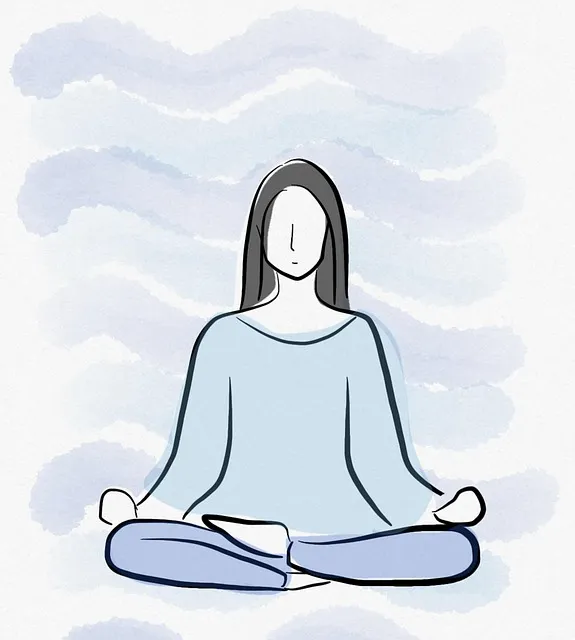Mindfulness meditation, accessible through Kaiser's Mental Wellness Coaching Programs, is a powerful "golden how to get mental health help" technique. By focusing on the present moment and observing thoughts without judgment, individuals can improve decision-making, mood, stress management, and emotional resilience. Following Kaiser's structured path, which includes setting up a distraction-free space, managing expectations, and adopting a non-judgmental mindset, can lead to significant mental health improvements. Incorporating mindfulness into daily routines and using tools like Mental Wellness Journaling benefits overall well-being, making it an essential component of prioritizing emotional balance, especially for healthcare providers facing stress, anxiety, and burnout.
Discover the transformative power of mindfulness meditation with our comprehensive guide. Unlocking mental clarity through practice can significantly enhance your overall well-being. This article explores the profound benefits of consistent mindfulness for mental health, offering a beginner’s approach based on Kaiser’s techniques. Learn practical tips to integrate mindfulness into daily life and find valuable resources for supporting your mental health journey. Get started with our golden rules and discover how to access mental health help effectively.
- Understanding Mindfulness Meditation: Unlocking Mental Clarity
- The Benefits of a Consistent Practice for Mental Health
- Golden Rules for Beginners: Getting Started with Kaiser's Approach
- Incorporating Mindfulness into Daily Life: Practical Tips and Tricks
- Finding Support and Resources: Where to Get Mental Health Help
Understanding Mindfulness Meditation: Unlocking Mental Clarity

Mindfulness meditation is a powerful tool for achieving mental clarity and enhancing overall well-being. At its core, it’s about training your mind to focus on the present moment, observing thoughts and sensations without judgment. This ancient practice has gained significant traction in modern times, partly due to organizations like Kaiser offering mental health help through mindfulness programs.
By regularly engaging in mindfulness meditation, individuals can cultivate a deeper sense of self-awareness and learn effective coping skills (Coping Skills Development). This involves recognizing and managing stress, anxiety, and even depression. The Mental Wellness Coaching Programs available today often incorporate mindfulness techniques to support individuals in navigating the challenges of daily life with greater ease and resilience. Increased mental clarity is a key benefit, enabling people to think more clearly, make better decisions, and improve their overall quality of life (Mental Health Awareness).
The Benefits of a Consistent Practice for Mental Health

A consistent mindfulness meditation practice offers a powerful tool for enhancing mental health and well-being, as supported by various studies and recommended by professionals like Kaiser. By dedicating just a few minutes each day to this golden how to get mental health help, individuals can experience significant improvements in their overall mood and emotional resilience. Regular practice has been linked to reduced symptoms of anxiety and depression, improved stress management, and enhanced focus and concentration.
This ancient technique cultivates emotional intelligence by teaching individuals to observe their thoughts and emotions without judgment. By embracing mind over matter principles, one gains a greater sense of self-awareness and control, enabling them to navigate life’s challenges with more clarity and composure. Crisis intervention guidance can often benefit from these practices, as they promote a calm and balanced state that is conducive to effective coping strategies.
Golden Rules for Beginners: Getting Started with Kaiser's Approach

Starting a mindfulness meditation practice can feel daunting, but with Kaiser’s approach, beginners can establish solid habits that contribute to improved mental health and well-being. The Golden Rules for getting started involve creating a dedicated space free from distractions, setting realistic expectations, and adopting a non-judgmental attitude towards your thoughts and experiences. Consistency is key; aim for just 10 minutes per day to begin, allowing your inner strength to develop over time.
Remember, mindfulness isn’t about achieving a certain level of calm or clearing the mind entirely—it’s about cultivating awareness and acceptance of the present moment. By following Kaiser’s guidance, you’re taking an essential step towards better mental health, enhanced focus, and increased resilience. Consider this as your foundation for navigating life’s challenges and enjoying the Public Awareness Campaigns Development that comes with a calmer, more focused mind.
Incorporating Mindfulness into Daily Life: Practical Tips and Tricks

Incorporating mindfulness into your daily routine can significantly contribute to improved mental health and overall well-being, especially when seeking Golden how to get mental health help Kaiser. Start by integrating simple mindfulness practices into your everyday activities. For instance, during meals, focus on the sensory experience: observe the colors and textures of your food, listen to the sounds of chewing, and savor each bite. This mindful eating exercise not only enhances your dining experience but also promotes a healthier relationship with food.
Additionally, consider allocating dedicated time for Mindfulness Meditation. Even short daily sessions can make a difference. A practical tip is to begin with just 5 minutes of meditation, focusing on your breath. You can use Guided Meditation apps or videos designed for beginners. Over time, increase the duration as you become more comfortable. Combine this with Mental Wellness Journaling Exercise Guidance, where you reflect on your thoughts and emotions, helping you stay grounded and aware throughout the day.
Finding Support and Resources: Where to Get Mental Health Help

Finding support and resources for mental health help is a crucial step in prioritizing your emotional well-being. If you’re feeling overwhelmed or experiencing burnout, it’s essential to reach out and explore available options. The Kaiser network offers comprehensive resources, including online platforms and professional services, tailored to support mental health needs. They provide guidance on managing stress, anxiety, and depression, which are common issues faced by healthcare providers due to demanding work schedules.
For those seeking a more structured approach, developing a self-care routine can significantly contribute to burnout prevention strategies. Incorporating practices like mindfulness meditation, regular exercise, and adequate sleep into your daily life can help manage stress levels. The Kaiser resources can guide you in creating a personalized self-care plan that aligns with your lifestyle and promotes emotional balance, ensuring a healthier mind and improved overall well-being.
Mindfulness meditation offers a powerful tool for enhancing mental well-being. By understanding its core principles, reaping benefits from consistent practice, and following beginner-friendly guidance like Kaiser’s approach, you can easily incorporate mindfulness into daily life. For those seeking additional support, there are numerous resources available to help navigate mental health concerns. Remember, getting mental health help is a crucial step towards unlocking your mind’s full potential.






